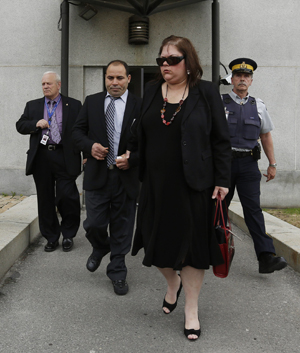The Canadian government was within its rights to order the deportation of Algerian Mohamed Harkat, the Supreme Court of Canada ruled on Wednesday, upholding a lower court’s finding that Harkat was a liar and likely a sleeper agent for terrorist organizations.

In making the decision in
Canada (Citizenship and Immigration) v. Harkat, the high court also unanimously upheld the constitutionality of Canada’s revised security certificate system. The system allows the government to designate foreign residents of Canada who are suspected of terrorism as inadmissible to Canada and can allow for their detention.
“The impugned provisions of the [Immigration and Refugee Protection Act] scheme are constitutional. They do not violate the named person’s right to know and meet the case against him, or the right to have a decision made on the facts and the law,” notes the decision.
The court did, however, allow for the possibility that Harkat might launch a fresh court challenge if he can demonstrate that he would be at risk of torture or death in the country to which he would be sent, presumably Algeria in his case.
Harkat had come to Canada as a refugee claimant and been taken into custody in 2002 under a security certificate. He has since been allowed to go free pending the outcome of this case.
The Supreme Court had struck down the security certificate system in 2007 on the grounds that suspects did not have a chance to see the government’s case against them.
The Conservative government then amended the law to provide for British-style special advocates for the suspects, who would be sworn to secrecy and could look at the evidence, and in its decision on Wednesday the court said this was constitutional.
Specifically on Harkat’s case, Chief Justice Beverley McLachlin wrote for the court that she could not find any overriding error in Federal Court Justice Simon Noel’s weighing of the evidence against Harkat or in Noel’s assessment of him.
She said Noel had “found that the evidence provided reasonable grounds to believe that Mr. Harkat had been involved with terrorist organizations. He held that Mr. Harkat’s behaviour and lies were consistent with the theory that he had come to Canada as a ‘sleeper’ agent for terrorist organizations.”

 In making the decision in Canada (Citizenship and Immigration) v. Harkat, the high court also unanimously upheld the constitutionality of Canada’s revised security certificate system. The system allows the government to designate foreign residents of Canada who are suspected of terrorism as inadmissible to Canada and can allow for their detention.
In making the decision in Canada (Citizenship and Immigration) v. Harkat, the high court also unanimously upheld the constitutionality of Canada’s revised security certificate system. The system allows the government to designate foreign residents of Canada who are suspected of terrorism as inadmissible to Canada and can allow for their detention.